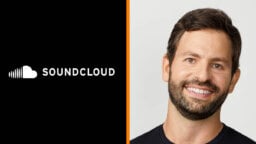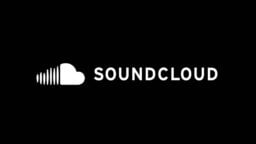SoundCloud has responded to the news that it’s being sued by PRS For Music, claiming that the legal action interrupts what it considers to be an “active commercial negotiation”.
Pay attention: that phrasing is very significant.
UK society PRS told its 111,000 publisher/songwriter members earlier today that it was suing SoundCloud after ‘five years of unsuccessful negotiations’.
Furthermore, in background notes given to MBW, PRS said: “SoundCloud does not accept that it requires a licence for its existing service in the UK and Europe and has informed us that it will be defending the claim.”
That very much sounds like SoundCloud is refusing to negotiate a licence, in PRS’s opinion – something the Berlin-based digital service appears to dispute.
Perhaps we can obtain a further clue from this telling (now-underlined) part of PRS’s note: “SoundCloud does not accept that it requires a licence for its existing service in the UK and Europe.”
Hmmm. Maybe SoundCloud is only willing to discuss a PRS licence for its fabled subscription service, rather than its current free platform?
That’s the subscription service that’s purported to arrive at some point this year, but which so far is nowhere to be seen…
(Sound familiar? Perhaps you’re thinking of that other scheduled new entry into the music subscription market – YouTube‘s Music Key. So far, that’s AWOL too. Cynical minds might wonder if these subscription services are more useful to SoundCloud and YouTube as tempting licensing promises than they are as tangible working platforms…)
“It is regrettable that PRS appears to be following this course of action in the midst of an active commercial negotiation.”
Soundcloud statement
Enough guesswork. Here’s what SoundCloud has said in response to the PRS lawsuit:
“It is regrettable that PRS appears to be following this course of action in the midst of an active commercial negotiation with SoundCloud.
“We believe this approach does not serve the best interests of any of the parties involved, in particular the members of the PRS, many of whom are active users of our platform and who rely on it to share their work and communicate with their fanbase.
“SoundCloud is a platform by creators, for creators. No one in the world is doing more to enable creators to build and connect with their audience while protecting the rights of creators, including PRS members.
“We are working hard to create a platform where all creators can be paid for their work, and already have deals in place with thousands of copyright owners, including record labels, publishers and independent artists.”
Which brings us to another interesting angle on all of this: SoundCloud’s existing deals with recorded music giants.
Warner Music Group licensed SoundCloud at the end of last year, and is now believed to own around 5% of equity in the platform.
Meanwhile, sources tell MBW that Universal has agreed a similar licensing deal, for even more equity – an agreement that we understand was due to be announced any day.
Here’s what that could mean: UMG and WMG may both now own a chunk of SoundCloud, while their publishing subsidiaries, UMPG and Warner/Chappell – fellow PRS For Music members – watch their British CMO fight the platform in court.
If that’s all true, then Sony chief Doug Morris – who has refused to license SoundCloud full stop – may well have afforded himself a little chuckle today.
PRS tells us that “amongst other defences” SoundCloud will rely on controversial European Safe Harbour laws to try and escape legal punishment for operating without a PRS licence.
The service is expected to lean heavily on the argument that it is a “host” of content and a “mere conduit” for copyrighted music.
BASCA – the British Academy of Songwriters, Composers and Authors – has spoken out in support of PRS For Music’s actions.
BASCA CEO Vick Bain commented: “As an organisation that works to protect our members’ rights we fully support PRS for Music’s decision to commence legal proceedings against Soundcloud.
“We acknowledge that streaming is a fantastic means of listening to and enjoying music but Soundcloud’s intransigence in refusing to be licensed through PRS for Music means their model financially damages our members.
“BASCA exists to protect the professional interests of its members and when we launched our The Day The Music Died Campaign earlier this year one of our key aims was to ensure the removal of Safe Harbour provisions – platforms such as Soundcloud hide behind this legislation to deny responsibility for the amount of music that is illegally uploaded and shared on its site.
“But we know they are very much aware of how their platform is used. We encourage all online services to establish frameworks that will fairly compensate songwriters, composers and authors – the PRS for Music online licence is the best way that this can be achieved.
“Soundcloud has had five years to respond to PRS’s request and should not be allowed to continue to hide behind Safe Harbour as a reason to deny our members the royalties they’re rightly entitled to”.
BASCA director and Songwriter Committee Chair Gary Osborne commented: “As usual people confuse Performers and Writers.
“While it might be morally acceptable for artists who exclusively perform their own material to forgo their royalties in the name of promotion, much of the time they’re performing other people’s compositions, thereby promoting themselves by giving away other people’s work.
“At which point the composer is being robbed by both SoundCloud and the act”.Music Business Worldwide





